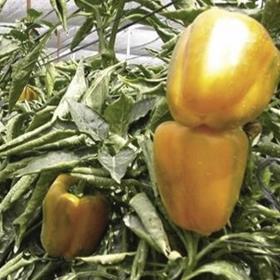
The European Commission Directorate-General for Economic and Financial Affairs has approved a new partnership agreement with Israel which will see greater liberalisation in the trade of agricultural products – including fresh fruit and vegetables – between the Mediterranean country and the EU.
The deal, which is due to be followed by a similar agreement with Egypt, is part of the EU's plans to create a free trade area around the Mediterranean from the start of 2010.
But while the agreement will grant full and unfettered access to EU markets for Israeli agricultural products, many of its key fresh produce exports will remain subject to certain restrictions.
Those products are: potatoes, tomatoes, cucumbers, peppers, courgettes, oranges, clementines, table grapes, melons and strawberries.
For these items, however, it is expected that the permitted export window will be extended and that Israel will be allowed to ship a greater volume of product to the EU.
For example, potatoes will now be granted entry between 1 January and 30 June, wiht a tariff-free quota set at 33,963 tonnes.
In the case of cherry tomatoes, meanwhile, the Commission has set a new tariff-free quota of 28,000 tonnes.
For tomatoes, cucumbers and peppers, revised quotas of 5,000 tonnes, 1,000 tonnes and 17,248 tonnes respectively have been introduced.
Israeli oranges, mandarins, melons and strawberries will also benefit from a reduction in the current tariff and a higher import quota.
Exports of Israeli courgettes to the EU will be allowed from the start of December until the end of February, while table grapes will now be granted entry from 1 April until 31 July.



